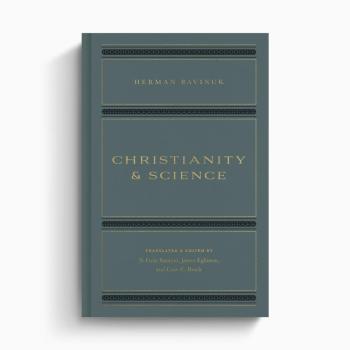In response to my column about theology last week, several people responded with a question similar to the one asked by a friendly critic: "How can something mean what it means without theological underpinnings?" That question deserves an answer.
It's a common assumption that religious meanings, whether in words, covenants, or rites, must have a metaphysical structure, such as a theology, behind them. Without that, supposedly, they don't mean anything. But since early in the 19th century, philosophers have questioned that assumption. That questioning reached a peak in the 20th century and has become a commonplace. Religious words and events cannot have meaning on their own, all by themselves, to be sure. But the question is whether they require a theology and, with many others, I think the answer is no.
First consider a counterexample from religion, Judaism. It has survived for thousands of years and seems not to have a particular theology. It goes without saying that I am not an expert on Judaism, so what I say should be read with some skepticism. That said, however, it seems that to be a Jew is not necessarily to believe certain propositions or to have a particular theology. It is to be related to the world in a particular way or a set of ways. That involves history and outlook, community with certain others, and a host of other things. Probably not all of the elements of what it means to be a Jew can be specified. But—thank God—we have Jews nevertheless, and without a Jewish theology. Howard Wettstein has discussed the point quite nicely in his The Significance of Religious Experience. In this regard Mormons are more like Jews than they are like most other Christians.
Consider a related point about meaning from everyday life. Yesterday my wife and I were returning home after some shopping. Just as we got to our bus stop a fight broke out. Four or five young women began beating another one severely. They were hitting and kicking her and pulling her hair. I was stunned. I didn't think, "What should I do?" I didn't think at all. I was neither afraid nor not afraid. I was momentarily immobilized by the surprise. Immediately, however, a young man passing by jumped into the fight and began breaking it up. The attackers quickly stopped and fled, leaving the young woman with a bloody nose and a bruised scalp, and probably other bruises as well, but relatively well off compared to what could have been.
The young man was brave. He could have been overwhelmed by the women and certainly took a few punches. He didn't know whether any of them had a weapon. But he did what needed to be done at the very moment required. I don't think that he and I have different beliefs about what should have been done. We both believe that we should come to the aid of those in distress. The difference between us wasn't that we saw the same situation and he thought, "At times like these someone should help, so I will" while I thought, "At times like these someone should help, but not me." The difference between us was in the ways we experienced the world. For me, the world was suddenly so unfamiliar that I couldn't act. Perhaps given a few more seconds to consider I could have, but I couldn't have done so instantaneously, as the young man did. For him the world was already a place calling him to act. That is what the situation meant to him, without reflection. There are any number of explanations for why he saw things as he did. Training can make the world that kind of place, for example. But beliefs, especially not theological or other metaphysical beliefs, don't explain why he was brave and I was not.
Religion is about living in the world in a certain way, seeing it differently, experiencing it differently. It entails beliefs, but it is a matter of beliefs, ways of acting, communal expectations, covenants, rites, and so on fitting together into a context that forms the background of an entire life (a "form of life" Wittgenstein calls it—Philosophical Investigations, section 19). No one of these is fundamental to the others. Religious beliefs, practices, and acts each have meaning against the background of and within the web they form. Together they are the meaning-context for religious life. Beliefs, theological or otherwise, don't have a special, more fundamental place in their relationship with the other parts of religious life and experience. They are part of a whole, and to be a religious person is to live within that whole.
12/2/2022 9:09:20 PM





